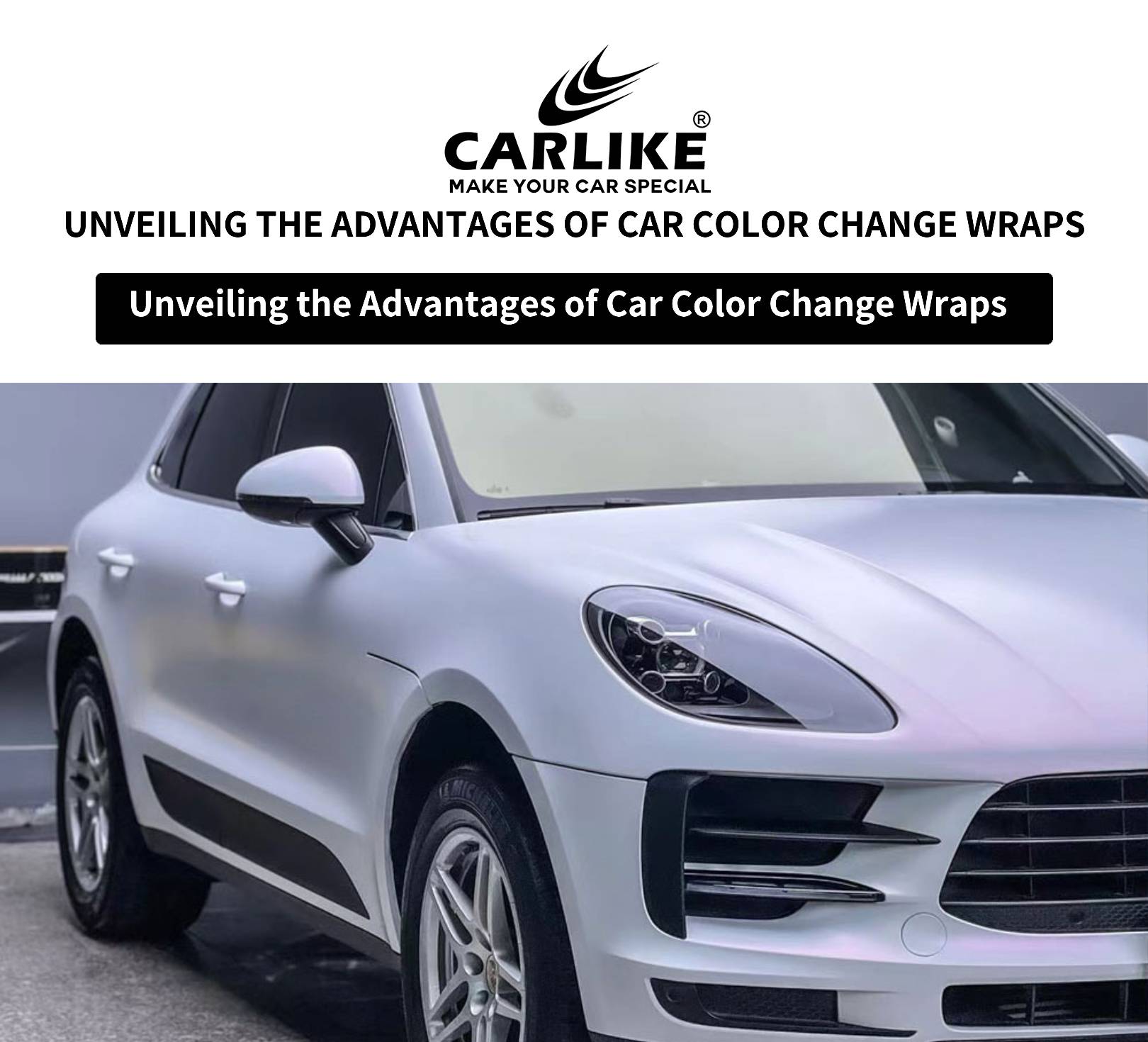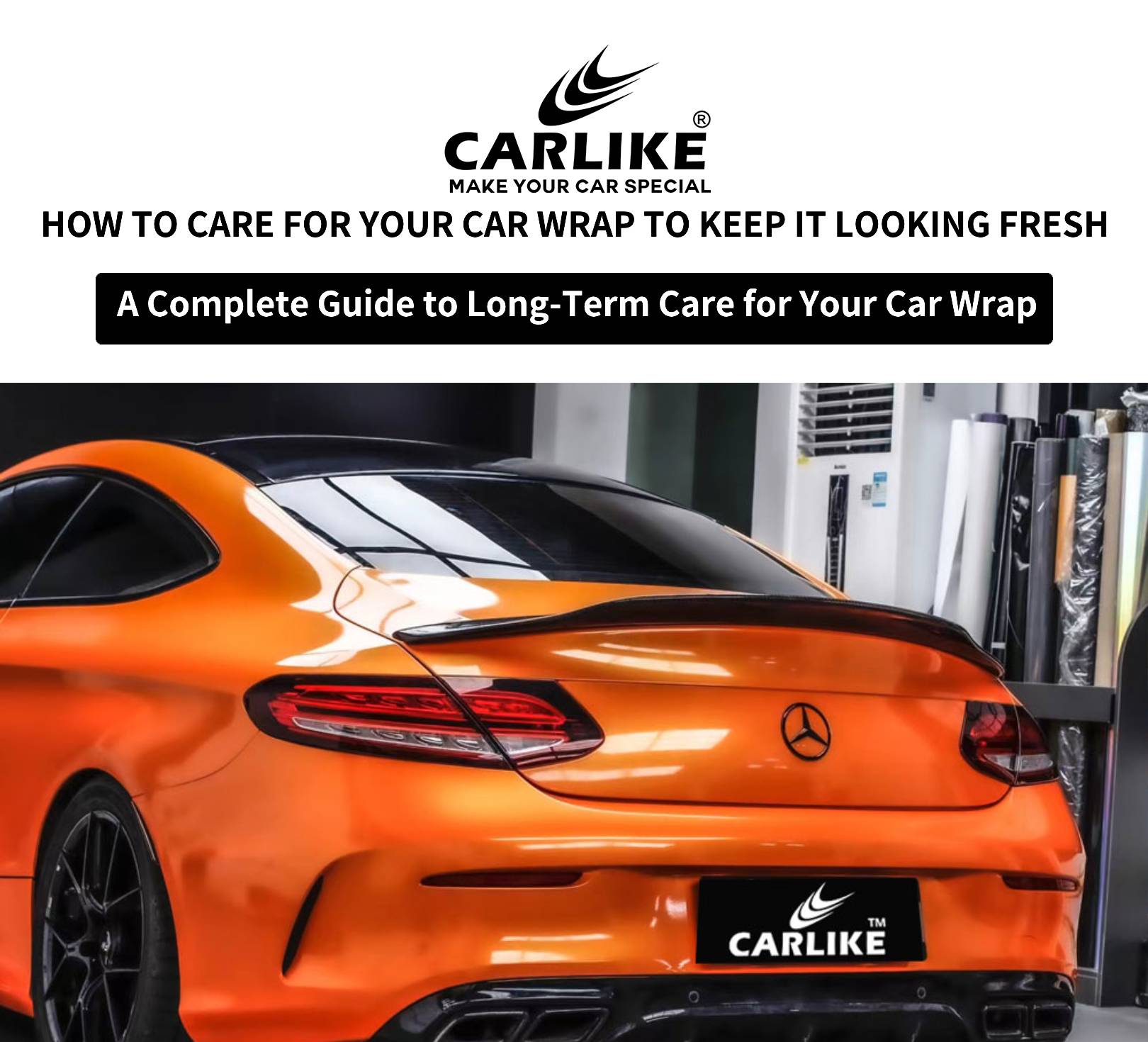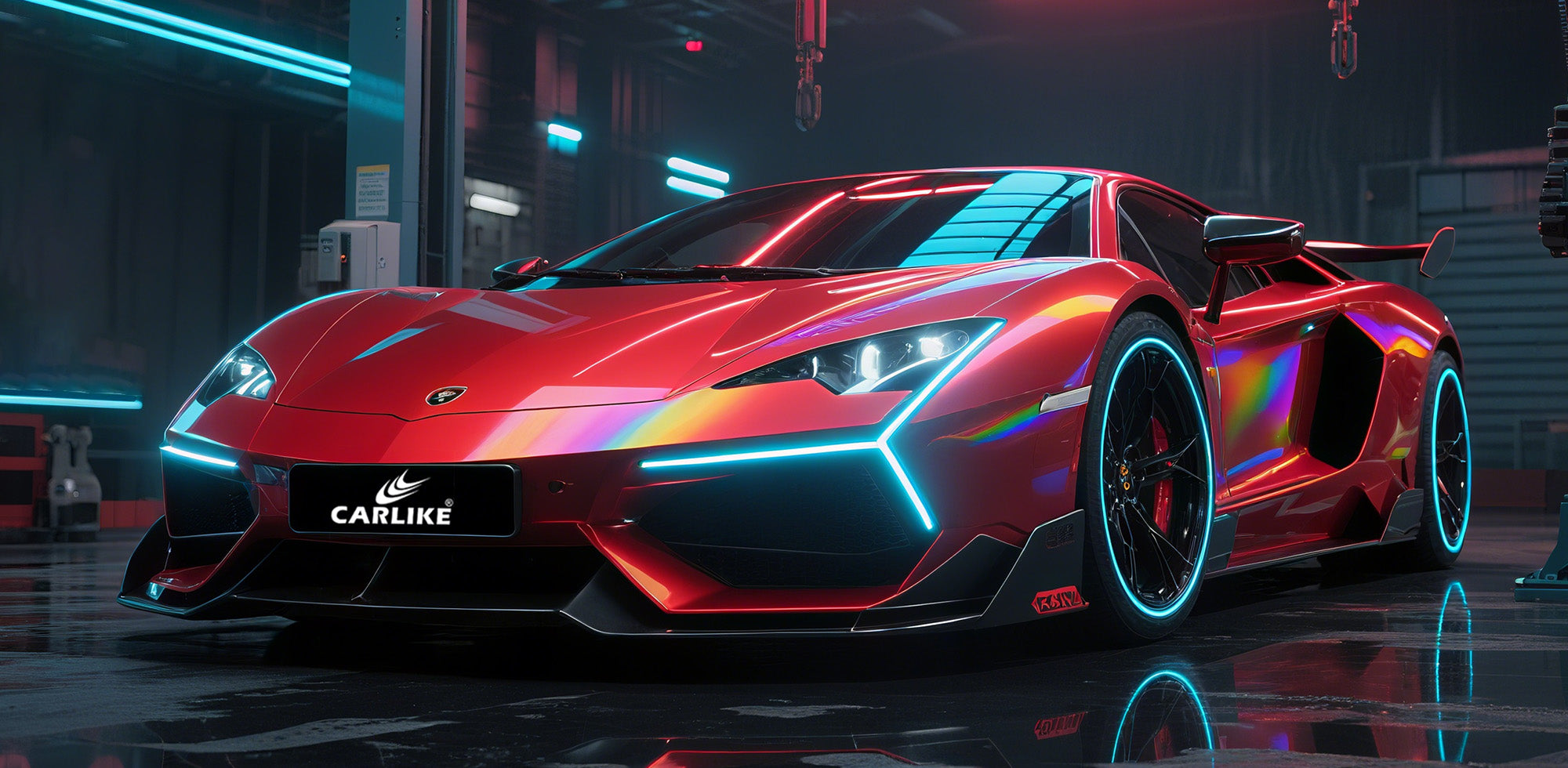ABOUT CARLIKE
CARLIKE® launched in 2012, mainly focus on premium car wrapping vinyls, with rich colors and stylish designs. High performance with economic price is always the persuit of CARLIKE®.
CARLIKE-Make Your Car Special.
Introduction
Car wrapping is a popular method of vehicle customization, but its cost can vary based on several factors. Here’s an overview:
1. Material Costs
- Vinyl Film Quality : Standard vinyl films typically range from $500 to $1,000 , while premium options like carbon fiber or holographic films can cost $2,000 or more .
- Brand : Reputable brands (e.g., 3M, Avery Dennison) often charge more but offer better durability and aesthetics.
2. Labor Costs
- Professional Installation : Depending on the size and complexity of the vehicle, labor costs can range from $1,000 to $3,000 or more. Larger vehicles like SUVs or trucks tend to be more expensive.
- DIY Installation : DIY kits may cost $500 to $1,500 , but they require time and expertise.
3. Additional Services
- Surface Preparation : Cleaning and repairing the vehicle’s surface can add $100 to $500 .
- Design Customization : Custom graphics or intricate designs can increase the price by $500 to $2,000 , depending on complexity.
4. Maintenance and Longevity
- Aftercare Products : Maintenance items like wrap-safe cleaning solutions and tools can add $50 to $200 over the lifespan of the film.
- Longevity : Most films last 3 to 7 years depending on quality and care, making them a long-term investment.
5. Regional and Market Factors
- Location : Costs may vary by region due to labor rates and availability of materials. Urban areas often have higher rates than rural ones.
- Demand and Competition : Areas with a higher demand for car vinyls or more competition may offer competitive pricing.
Estimated Total Costs
A full car vinyl can range from $2,000 to $5,000 for standard vehicles and higher for luxury or larger models. Understanding these components can help you plan and budget effectively.
Factors Affecting the Price of Car Wrapping
Material
- The type and quality of the vinyl wrap significantly impact the cost.
- Standard gloss wraps are often more affordable, while specialty finishes like matte, satin, chrome, or carbon fiber wraps tend to be pricier.
- Premium brands like 3M or Avery Dennison may also command higher prices due to their durability and reputation.
Size of the Vehicle
- The size of your car directly affects the amount of material and labor needed.
- Wrapping a small sedan costs less than wrapping larger vehicles like SUVs, trucks, or vans.
- Larger vehicles also require more intricate handling, which can increase labor costs.
Design Complexity
- A simple, single-color wrap is less expensive than a custom-designed wrap featuring intricate patterns, logos, or graphics.
- Custom wraps require additional design work, printing, and precision during application.
- The more detailed the design, the more time and expertise needed, which increases the price.
Comparison of professional installation vs. DIY
1. Cost
- Professional Installation : Typically ranges from $2,000 to $5,000, depending on the vehicle size, wrap material, and design complexity.
- DIY : Costs are significantly lower, usually between $500 and $1,500, as you only pay for materials and basic tools.
2. Skill and Expertise
- Professional Installation : Experts are trained to handle complex curves, seams, and finishes with precision.
- DIY : Requires patience, practice, and some level of technical skill. Mistakes, such as bubbles or misalignment, can be challenging to fix.
3. Time Investment
- Professional Installation : Can be completed in 1-3 days, depending on the wrap complexity.
- DIY : May take several days to weeks, depending on experience and the size of the project.
4. Quality and Finish
- Professional Installation : Provides a flawless finish with no visible seams or bubbles. Warranty options are often available.
- DIY : Results can vary based on skill level. Achieving a professional look without experience can be difficult.
5. Tools and Resources
- Professional Installation : Includes access to advanced tools, facilities, and experienced technicians.
- DIY : Requires purchasing or renting tools like heat guns, squeegees, and knives. Lack of the right environment (dust-free) can impact the quality.
6. Customization Options
- Professional Installation : Offers custom designs, color matching, and high-end finishes.
- DIY : Limited to pre-designed wraps unless you have the skills and equipment to create custom designs.
7. Durability
- Professional Installation : Proper application ensures the wrap lasts 5-7 years with minimal maintenance.
- DIY : Improper application may lead to peeling or bubbling, reducing the wrap's lifespan.
CARLIKE-Make Your Car Special.
Hidden costs to be aware of
1. Surface Preparation Costs
- Paint Repair or Restoration: If your car’s paint is chipped, scratched, or uneven, these issues need to be fixed before applying the wrap. This can add significant costs.
- Cleaning and Detailing: A thoroughly clean and debris-free surface is essential. Professional cleaning may incur extra fees.
2. Customization Fees
- Complex Designs or Patterns: Custom graphics, multiple colors, or intricate designs may require additional labor, increasing the total cost.
- Specialty Films: Using premium finishes like chrome, matte, or textured films often costs more than standard options.
3. Removal of Parts
- Disassembly Charges: Parts like bumpers, door handles, mirrors, or badges may need to be removed for a seamless wrap. Professional removal and reinstallation can add to the cost.
- Reinstallation Issues: Sometimes, clips or fasteners break during the process, leading to unexpected repair or replacement costs.
4. Longevity and Maintenance
- Edge Lifting Repairs: Over time, edges of the wrap might lift, especially if not applied properly. Repairing these areas can be an unanticipated expense.
- Cleaning Products: Special cleaning solutions and tools are often required to maintain the wrap, adding to long-term upkeep costs.
5. Wrap Removal Costs
- Removing a wrap professionally can be time-consuming and expensive, especially if adhesive residue needs to be cleaned or if the wrap was left on too long and damaged the paint.
6. Hidden Damage Post-Removal
- If a wrap is removed incorrectly or the paint wasn’t in great condition beforehand, additional expenses may arise to fix any damages revealed.
7. Regulatory or Compliance Fees
- In some areas, using reflective or specialty wraps may require permits or incur legal fees for non-compliance with local laws.






